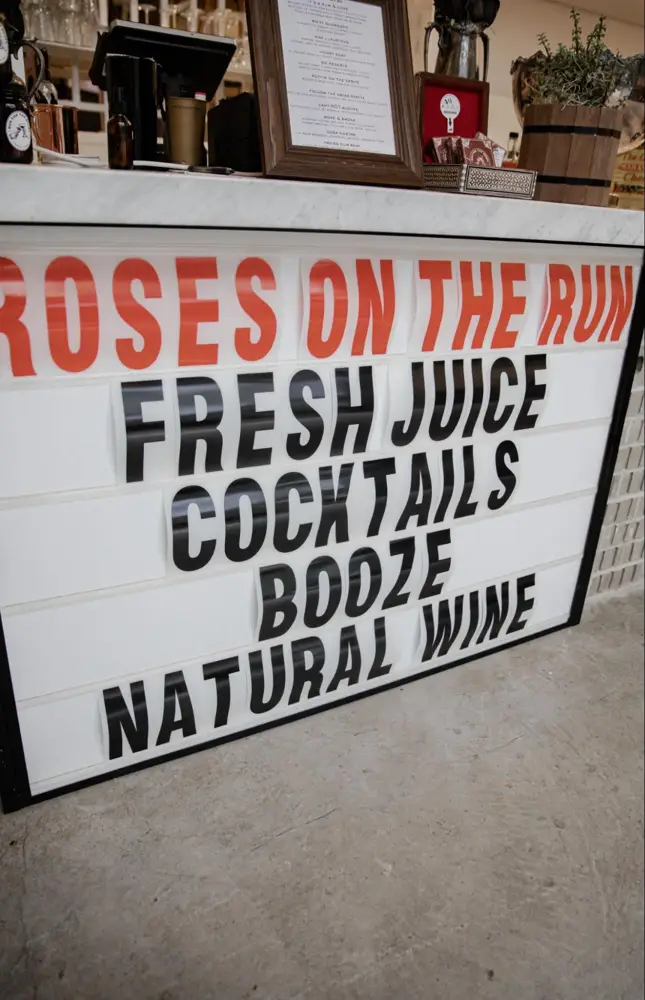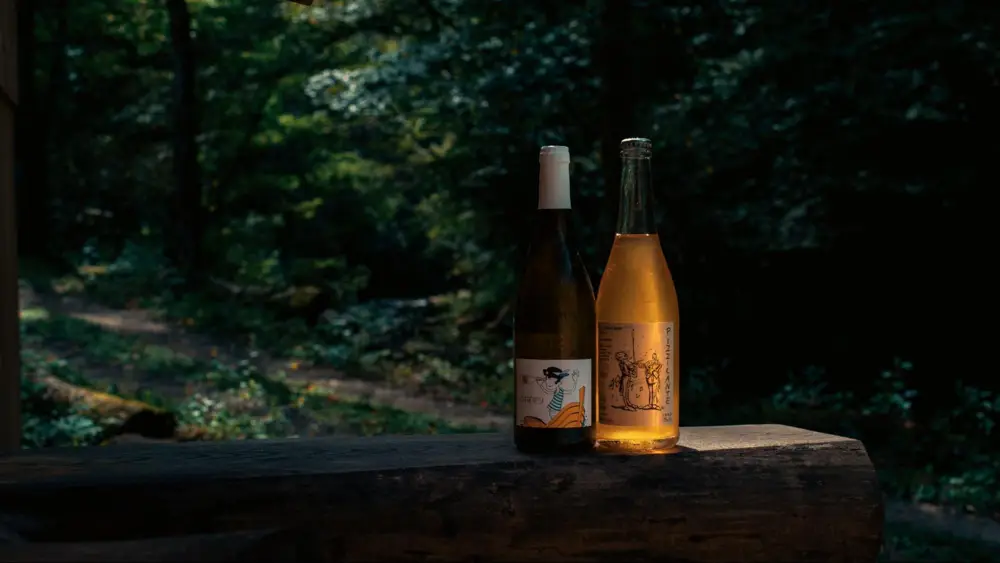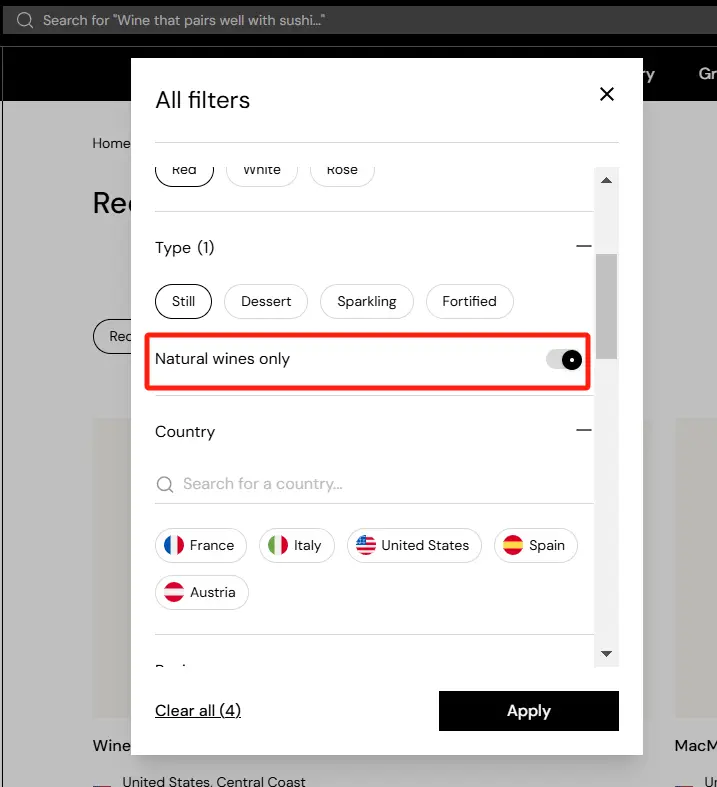Six Common Myths and Realities of Natural Wine
Years ago, when natural wine was still a niche trend, skeptics dismissed it as nothing more than a passing fad—a marketing scheme for rebellious vignerons or people from all walks of life seeking an escape from their corporate routines, trying to infuse a touch of cool by becoming winemakers themselves. Today, natural wines have grown far beyond their niche origins, becoming a global phenomenon found in wine bars, retail shops, and even Michelin-starred restaurants.
Natural wine is no longer on the outskirts of the wine world, it has firmly established itself as an important category. With time, associations and wine professionals have formed mutual understandings of this unregulated area. Nonetheless, despite the efforts made in demystifying natural wine, there exists some common misconceptions about natural wine. In this article, we aim to dispel these myths and shed light on the realities and give you a better understanding of the world of natural wine.

Myth 1: Natural Wines are Funky
Reality: One of the biggest natural wine myths is that all of them taste “funky.” While some low-intervention wines develop wild, unpredictable flavors due to spontaneous fermentation, many others are clean, balanced, and structured. In the context of natural wine, the term "funky" typically refers to the presence of unusual and eccentric aromas and flavors, such as the nail polish smell caused by volatile acidity or the meaty, gamey, "horse blanket" smell caused by the yeast strain Brettanomyces bruxellensis (commonly known as “Brett”), which is often attributed to spontaneous fermentation, very low sulfur dioxide levels and minimal intervention winemaking. Just like conventional wines, a small amount of those aromas and flavors can add to the complexity of the wine, too much of them, however, become wine faults. Keep in mind that there is a vast range of natural wines available. Many are exceptionally stable, with classic taste profiles and little funkiness. The perception of funkiness is heavily influenced by the winemaker's decisions and the grape varieties used.
Myth 2: Natural Wines Can't Age
Reality: A common natural wine misconception is that they can't age. In reality, a wine's aging potential—whether organic wine, biodynamic wine, or natural wine—depends on factors like acidity, tannin structure, alcohol balance, and winemaking choices. While some natural wines are made for immediate consumption in order to retain their youthful vibrancy and freshness, others are made to age gracefully over time. Natural wines, like conventional wines, can have the structure and balance needed to evolve nicely in the bottle. A well-made natural wine with high levels of acidity or tannin can be aged for years, even decades.
Myth 3: Natural Wine is a New Trend
Reality: Many believe natural wine is a modern trend, but its roots go back over a century. The natural wine movement gained traction in the 1960s and 1970s as winemakers rebelled against industrialized winemaking, returning to low-intervention techniques and organic farming. Instead of increasing yields and increasing economic efficiency, natural winemakers promote organic and biodynamic farming, minimal use of additives, and a minimal intervention approach in the cellar, with the aim to preserve the environment and make wines that truly express the terroir. Natural wine is, in essence, a renaissance of historical winemaking processes rather than a new trend.

Myth 4: Natural Wine Has No Sulfites
Reality: One of the most misunderstood natural wine facts is about sulfites in wine. Sulfites are a natural byproduct of the winemaking process in the form of sulfur dioxide. They serve as a preservative in wine to prevent spoiling and oxidation. While some assume natural wines contain no sulfites, the truth is that all wines—including organic and biodynamic wines—naturally produce sulfur dioxide (SO₂) during fermentation. The key difference is the quantity and purpose of sulfur use. Natural winemakers may choose to use little or no sulfur, but they recognize the existence of naturally occurring sulfites in the wine.
Myth 5: All Natural Wines are Outside of the PDO System
Reality: The Protected Designation of Origin (PDO) system is well-known in Europe for controlling wine quality and origin. While some natural winemakers opt to work outside of the PDO system in order to have more freedom in creativity or innovation, many others work within it. When natural wines meet the standards for specific appellations, they are classified as such. Furthermore, some winemakers choose the "Vin de France" or "IGP/IGT" labels, which let them experiment with different grape varieties or production zones while still comply with certain regulations. Depending on the winemaker's objectives, natural wines can coexist inside and depart from the PDO system.
Myth 6: Natural Wines are Easy-Drinking but Lack Complexity
Reality: The belief that all natural wines are simple, “glou-glou” wines without depth is one of the most misleading natural wine myths. Many minimal-intervention wines exhibit remarkable complexity, rivaling some of the finest conventional wines in the world, even though some are made to be "vin de soif”, for casual sipping. Natural winemakers often take pride in allowing the terroir and the grape's true character to shine through. However, the style of wine, whether approachable or sophisticated, is the choice of winemaking. The complexity of natural wines varies greatly, just like that of conventional wines, and some great natural wines can rival some of the finest conventional wines in terms of depth and complexity.
The world of natural wine is interesting yet full of misconceptions. Hopefully, the aforementioned facts have improved your understanding of natural wine.
Dear VinoVosser, whether you are a curious explorer or an experienced natural wine lover, sReady to explore the world of natural wines? Head to VinoVoss.com, switch on the “Natural Wines Only” filter, and discover low-intervention wines suited to your taste!

Sylvia Ba



